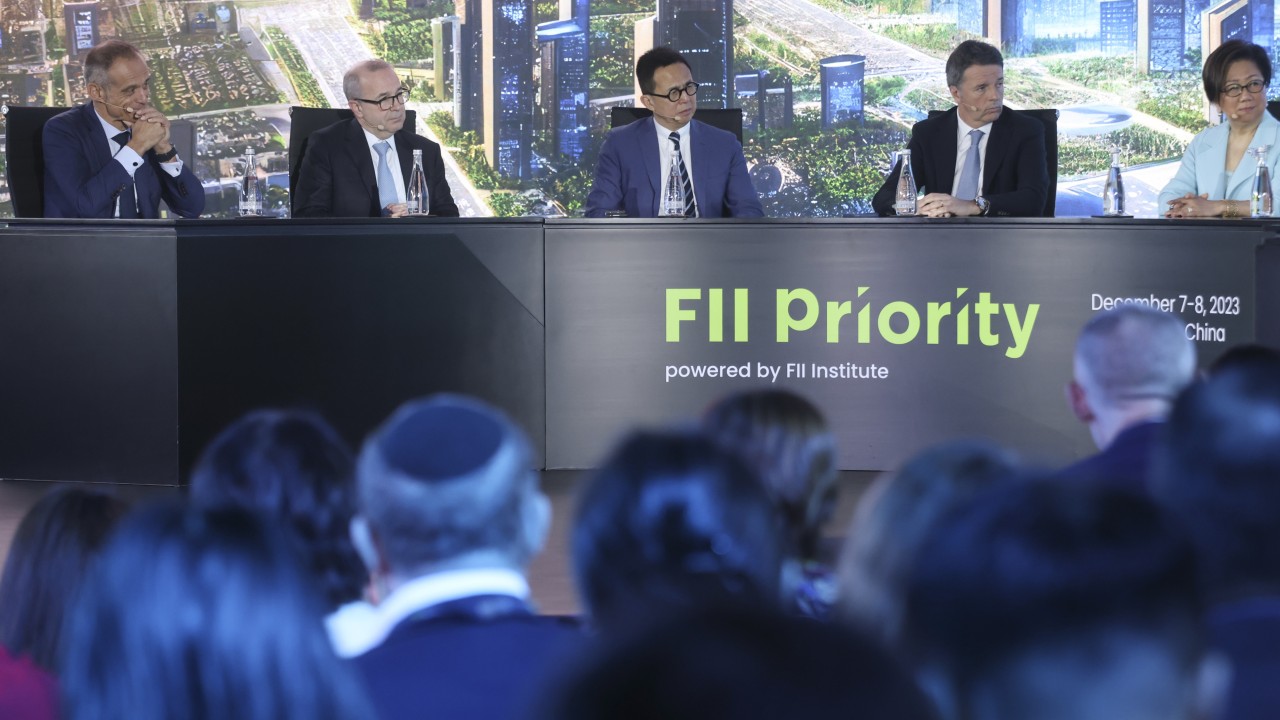
Organised in partnership with the city’s government and bourse operator Hong Kong Exchanges and Clearing, this is the first time that the event is being held in Asia. It comes as Saudi Arabia and China forge closer ties that are likely to shape global transformation.
Participants also discussed the ethics surrounding AI and how to navigate the challenges of regulation.
“AI and ChatGPT are in their infancy, and we should not try to stunt AI technology just because of how bad people could use it potentially,” said JP Gan, the founding partner of INCE Capital. “We should let technologists be technologists and let entrepreneurs be entrepreneurs, with venture capital firms providing funding for the growth.”
Technology can improve efficiency, improve life expectancy, reduce waste, support the environment and improve sustainability, he added.
AI-related investment is forecast to approach US$200 billion globally by 2025, according to an August report by Goldman Sachs.
Generative AI, which uses machine learning to produce original content such as text and images, has enormous economic potential to boost global labour productivity by more than 1 per cent a year in the decade following its widespread usage, the report also showed.
To support the development of technology while cutting the risk of it being used for bad, regulators must exercise a high degree of transparency and communication, according to Fred Hu, founder and chairman of Primavera Capital Group.
“Government, media, regulators, everyone has to work together – there cannot be too much regulation too early,” said Hu.
High standards for framework and regulation, transparency and communication, will help the world create an innovative and safe environment for the development of AI.
Adding a human-centric approach to the development of AI related regulation, will help ensure AI becomes a “force for good”, said Pulier.
“If we’re gonna make tech human-centric, an actual force for good, we have to step back and say we value humanity over and above efficiency, over and above, money, capital and everything else,” he said.
“Technology provides democratisation, access to markets, access to opportunities and remote working,” said Mostapha Tahiri, executive vice-president and head of APAC and MEA at State Street Corporation.
The most prominent trend that emerged during the Covid-19 pandemic was the mass shift towards remote working and the challenge for policymakers was to ensure inclusivity and that the benefits of technology, like being able to work remotely, are made available to everyone, said Tahiri.
“Everyone needs to come together to define what are the ethics of transparency, of inclusivity, we need to govern AI and ensure a basic competitive advantage for everyone in that space,” he said.

